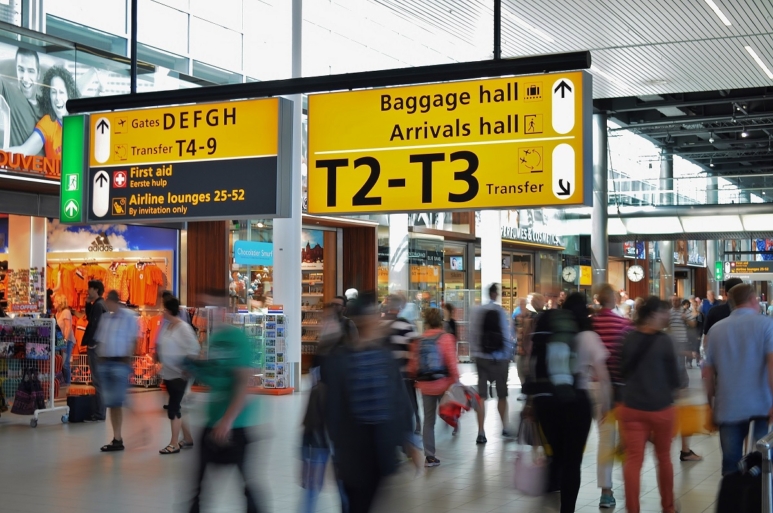
The Ultimate Guide to Exchanging Currency for Traveling
This 2023, the global currency exchange market experienced exponential growth despite global uncertainties. Offering travelers various ways to exchange currencies is essential to making their trips smooth and trouble-free, particularly now that international travel has returned to pre-pandemic levels. As a traveler, you need to remain ahead of your game by equipping yourself with knowledge regarding the most practical ways of exchanging currency for traveling.
Currency exchange rates are primarily determined by the foreign exchange (Forex) market and its fluctuations. TradingView is an invaluable website that allows you to monitor currency exchange rates in real-time and understand potential changes that might influence their value in your destination nation. Knowing when and how best to exchange can result in significant savings.
In this article, we’ll guide you to the available exchange options for travelers and tips to get the best value when exchanging your money.
Contents
- Available Exchange Options for Travelers
- Strategies for Exchanging Currency
- 1. Discover your fees
- 2. Establish backup plans
- 3. Keep up and be vigilant (SUVI)
- 4. Measure local preferences
- 5. Use convenient technology
- 6. Be wary of currency exchange regulations
- 7. Consult experienced fellow travelers
- 8. Accepting change with an open mind
- 9. Sustainable travel and financial decisions
- 10. Avoid common pitfalls
- 11. Be culturally sensitive
- Conclusion
Available Exchange Options for Travelers

Tracking exchange rates on websites such as TradingView can assist you in identifying the optimal times and ways to conduct an exchange transaction. Diversify your options. Being prepared with multiple options, like cash on hand and credit cards specifically designed for travel, can protect you from unexpected events.
Let us look at all of the potential forms that money exchange could take:
Airport currency kiosks
While airport currency kiosks may provide convenient exchange rates, their exchange rates could be more favorable. Therefore, it’s prudent to convert only a modest sum for immediate expenses before looking for other exchange options elsewhere with more favorable terms.
Banks and financial institutions
Banks offer highly competitive currency exchange rates. However, their hours may sometimes align with your travel plans. Furthermore, transaction fees vary widely between banks.
Credit and debit cards
Credit cards can be an ideal solution, mainly if the credit card issuer does not charge international transaction fees. Plus you could receive bonuses, points, or cash back by using one. On the other hand, debit cards offer direct access to local currency via attractive exchange rates.
However, you should remain vigilant against activities like card skimming and fraud, which can easily happen when traveling.
If you are a Canadian who is travelling internationally, consider carrying one of the best no foreign transaction fee credit cards for Canadians to save on your purchases.
ATMs
Relying on automated teller machines (ATMs) when traveling can be advantageous, as these machines often offer competitive exchange rates. However, you must remain mindful of any transaction fees or withdrawal limits associated with using an ATM.
Currency exchange services online
Online services like Revolut and Wise (formerly TransferWise) provide an efficient transaction experience, competitive exchange rates, and user-friendly fees, making transactions via mobile devices more accessible than ever.
Peer-to-peer currency exchange services have recently become more accessible and cost-effective.
P2P (peer-to-peer) currency exchanges, expected to become increasingly common in the near future, allow you to trade currencies directly without needing a third-party agent. This process is made even simpler through platforms like WeSwap that match people looking for compatible currencies.
Crypto cards
With the rising popularity of cryptocurrencies comes an array of cryptocurrency cards that allow you to make purchases while drawing funds out of your cryptocurrency balances—an innovative new concept in its infancy. This option is an exciting departure from traditional practices but presents unique opportunities.
Strategies for Exchanging Currency

Knowledge’s value lies solely in how effectively it’s applied. This is how to stay ahead in the race:
1. Discover your fees
Understand the fees associated with the exchange options you have selected. Doing this may enable you to save considerable money when comparing charges between the options available.
2. Establish backup plans
Be ready for unexpected circumstances by having an emergency plan ready, such as extra cash saved up or a different credit card available in case something goes awry.
3. Keep up and be vigilant (SUVI)
Maintaining up-to-date with the latest developments in currency exchange methods is vitally important, so subscribing to newsletters or configuring alerts on platforms like TradingView could prove wise decisions.
Safety must also be considered. Take appropriate precautions such as updating passwords regularly and monitoring bank statements for any strange activity.
4. Measure local preferences
Cash continues to reign supreme in many parts of the world, so be sensitive to local norms and preferences regarding various forms of payment, such as credit cards versus cash, in major cities or rural areas. If you are flexible in accommodating others’ choices, financial transactions will go more smoothly, and cultural experiences will prosper.
5. Use convenient technology
Utilizing mobile applications and online wallets often creates a more streamlined experience. Contactless payments such as Apple Pay, Google Pay, and Samsung Pay provide convenient options with lightning-fast prices and additional safety features.
6. Be wary of currency exchange regulations
Each nation may have different rules for exchanging currencies, so familiarizing yourself with their regulations may save you unnecessary complications and restrictions on your currency exchange transactions. For example, certain countries may limit or restrict how much currency you bring or take from them.
7. Consult experienced fellow travelers
Wisdom gained from those who have gone before you is often invaluable. Participating in travel discussion boards or forming relationships with seasoned travelers can provide priceless information and tips tailored to your destination.
8. Accepting change with an open mind
As we progress into the 2020s, technological and financial innovations will only become more prominent. It is, therefore, essential to maintain an open mindset toward new forms of monetary transaction; cryptocurrency cards and peer-to-peer exchanges may have recently emerged, but it’s impossible to predict what the future may hold, so remaining adaptable and open to change will serve you well in all aspects of international travel.
Staying adaptable may even serve you better for currency exchange transactions.
9. Sustainable travel and financial decisions
Traveling sustainably is increasingly focused in the travel industry, including financial transactions. Use digital transactions instead of paper when conducting financial business, reducing paper waste. Furthermore, some credit cards now tie their fees directly to environmental initiatives, an interesting recent development that should continue.
10. Avoid common pitfalls
Navigating the complex world of currency exchange can be daunting, and it’s often hard to avoid potential pitfalls. Be wary of merchants offering to convert charges back to your native currency at less favorable exchange rates; it would be best to pay in local cash whenever possible.
11. Be culturally sensitive
Traveling internationally demands familiarizing yourself with and showing respect for the culture of each destination country, including financial transactions. Haggling is considered impolite in some regions yet a cultural norm elsewhere; understanding and respecting these cultural norms will ensure smoother business dealings and help form more meaningful relationships within the local communities you visit.
Conclusion
As such, travelers will find themselves with many currency exchange options when exchanging funds, from traditional banking institutions and ATMs to cutting-edge cryptocurrency cards and peer-to-peer exchanges.
Education is one of the primary components of successful money management when traveling to foreign countries. Be flexible, stay alert, and show consideration for local customs if possible; doing this can ensure hassle-free yet profoundly rewarding travel experiences.
Always remember that travel is more than simply arriving at an assigned destination; its purpose should be to experience as much as possible along the journey itself and all there is to see and do along its path. How you handle your finances will have an important role to play here; therefore, equip yourself with knowledge, keep an open mind to new experiences, and strive to allow your journeys to be as limitless as your imagination can make them!



